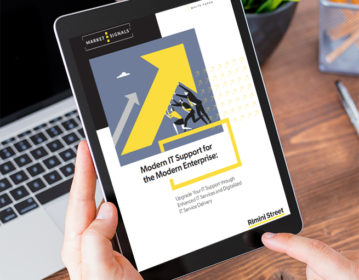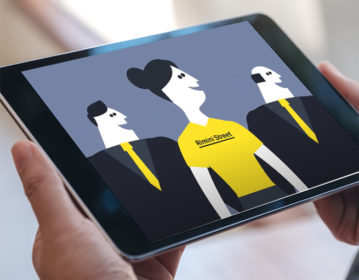
When ERP is composed of a variety of products and services, who do you call when something doesn’t work? How do you coordinate changes across the portfolio of solutions? And how do you ensure that change in one component is compatible with other components? These are just a few questions that must be thoughtfully answered when moving to composable ERP.
Analysis
Supporting composable ERP is different from supporting an integrated ERP.
A fundamental difference between composable and integrated ERP is that the number of vendors and products involved in composable ERP can be much higher and the vendors are not usually coordinated by a primary ERP vendor. A number of process and organizational changes are necessary to effectively support a composed ERP application portfolio. Examples of support areas requiring changes in approach include (but are not limited to):
Vendor management becomes a critical discipline within the support team
Instead of a single ERP vendor, enterprises will likely have many vendors whose products and services must work seamlessly together within the ERP application portfolio. This means that an issue with a given vendor could impact the performance of other products and services in the portfolio. Vendor SLAs must include performance criteria for services that impact related ERP components. Vendor-switching and replacement strategies must be developed and address keeping the remainder of the portfolio operational while the swap out occurs. These are just two examples to show how multiple vendors create a need for some type of unified orchestration of application services across the ERP portfolio.
A broader set of IT knowledge and skills is needed
Most enterprises still organize support around products and vendors. The competency center and vendor-based support team approaches to operating and supporting ERP may need to evolve from a vendor/product-specific structure to a business capability focus that includes all the products/services supporting given capabilities. Using Order-to-cash (O2C) as a business capability example that crosses the financial supply chain, support experts must have the knowledge and skill to troubleshoot and apply changes that cross the business in addition to changes that cross products and services.
Support must be strategic and coordinated
New cloud solutions create opportunity and risk from a business process perspective. The business has more options for improving business outcomes, but multiple vendors increase the risk that individual business-driven technology decisions will create unexpected downstream solution management and support issues. The business needs IT to be a strategic partner able to provide a unified view of incumbent and candidate vendors and products in order to ensure that new services and products fit into the composable ERP portfolio.
Pullout: 40 percent of CIOs say “limited collaboration” across BizDevOps teams is upsetting IT’s ability to act quickly to address “sudden changes” (i.e.: crises).
What to Watch for
When moving to composable ERP, watch for increased complexity in the ERP portfolio creating a risk of overwhelming the existing support model’s ability to deliver services at scale.
An increase in the number of vendors in the applications portfolio has the potential to hinder support services and make it difficult to be agile when the business demands more frequent change at a faster pace. The more vendors in the portfolio, the more coordination (and time!) it takes to test every change. More vendors equate to more effort and risk for almost every aspect of support – trouble shooting, synchronizing environment restores, and ensuring compatibility across the cloud and noncloud components of the portfolio.
Actions to Take
- Develop a unified view of support to enable solution choices that are compatible with the existing ERP ecosystem and technology roadmap. This new approach gives the enterprise a holistic view of its multivendor, multiplatform, composable ERP environment. It provides a single experience for software support by eliminating traditional software support silos. By bringing operations, application management, and support activities together under a single umbrella, IT leaders can improve business outcomes.
- Simplify ERP support wherever possible. To successfully operate, manage, and support composable ERP, leaders need to reduce the complexity of multivendor, multiplatform environments. A unified support model for system operations, application management, and support provides simplicity by organizing the multiple vendors and service layers in the support workstream into a single oversight mechanism. This results in fewer hand-offs and a more seamless support effort.
- Design a more scalable ERP support services model. As the ERP portfolio expands and contracts with changes to individual solutions, support also needs to scale. A unified support model allows IT to more easily scale through a single organizational structure that is able to absorb new projects as they happen rather than waiting to set up support as individual projects are completed.
- Ensure that IT can keep pace with the business as the ERP portfolio evolves. With more vendors in the technology portfolio, it becomes even more critical to understand the operations, application management, and support risks of a technology choice. A unified support model positions IT to be more strategic when managing the ERP portfolio. A single provider with knowledge of the portfolio helps the business make better solution choices as it takes advantage of new, innovative opportunities. As the business makes technology decisions, unified support allows IT to provide insight into how well options will fit into the composable ERP portfolio, not only from an operational perspective, but also from a support and a roadmap perspective.
For more on supporting composable ERP, read how modern IT support is necessary for the modern enterprise. Also, learn about how unified support services improve IT outcomes and help IT keep pace with the business.




